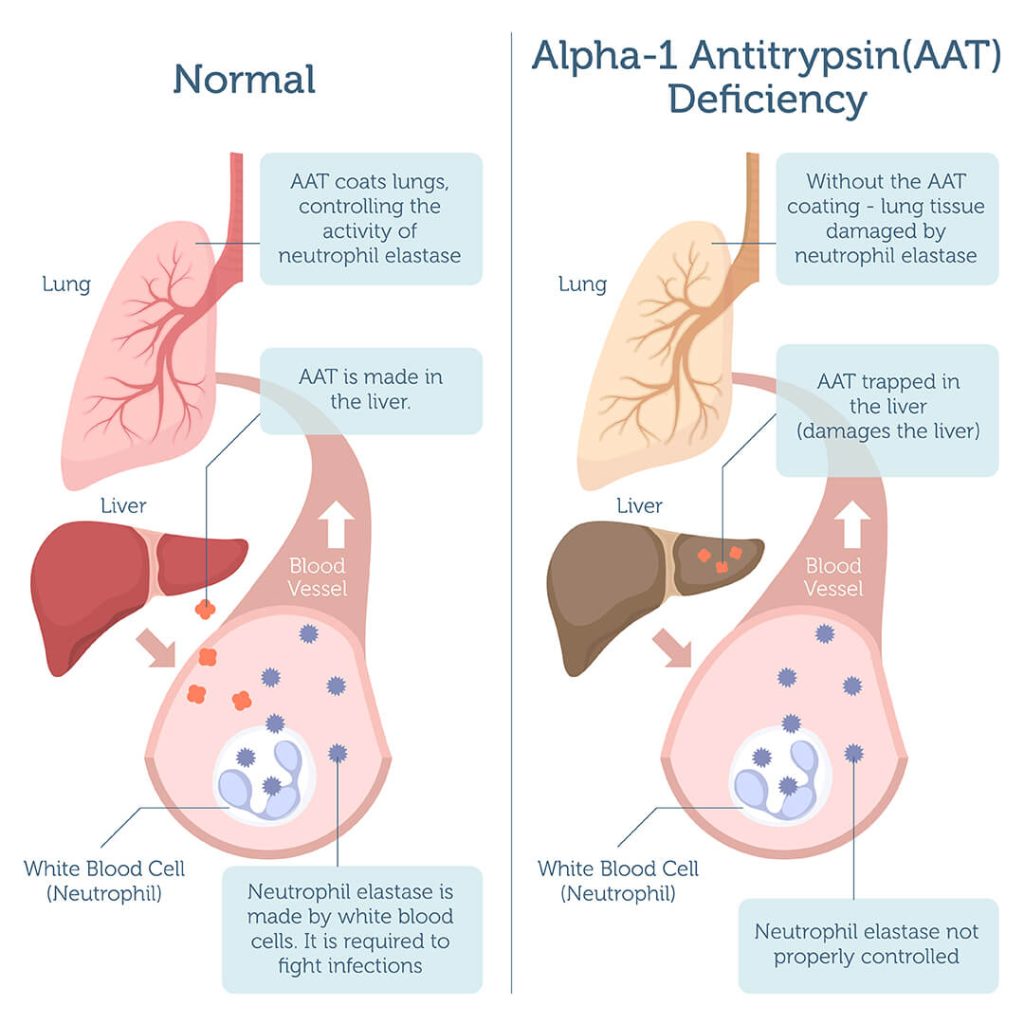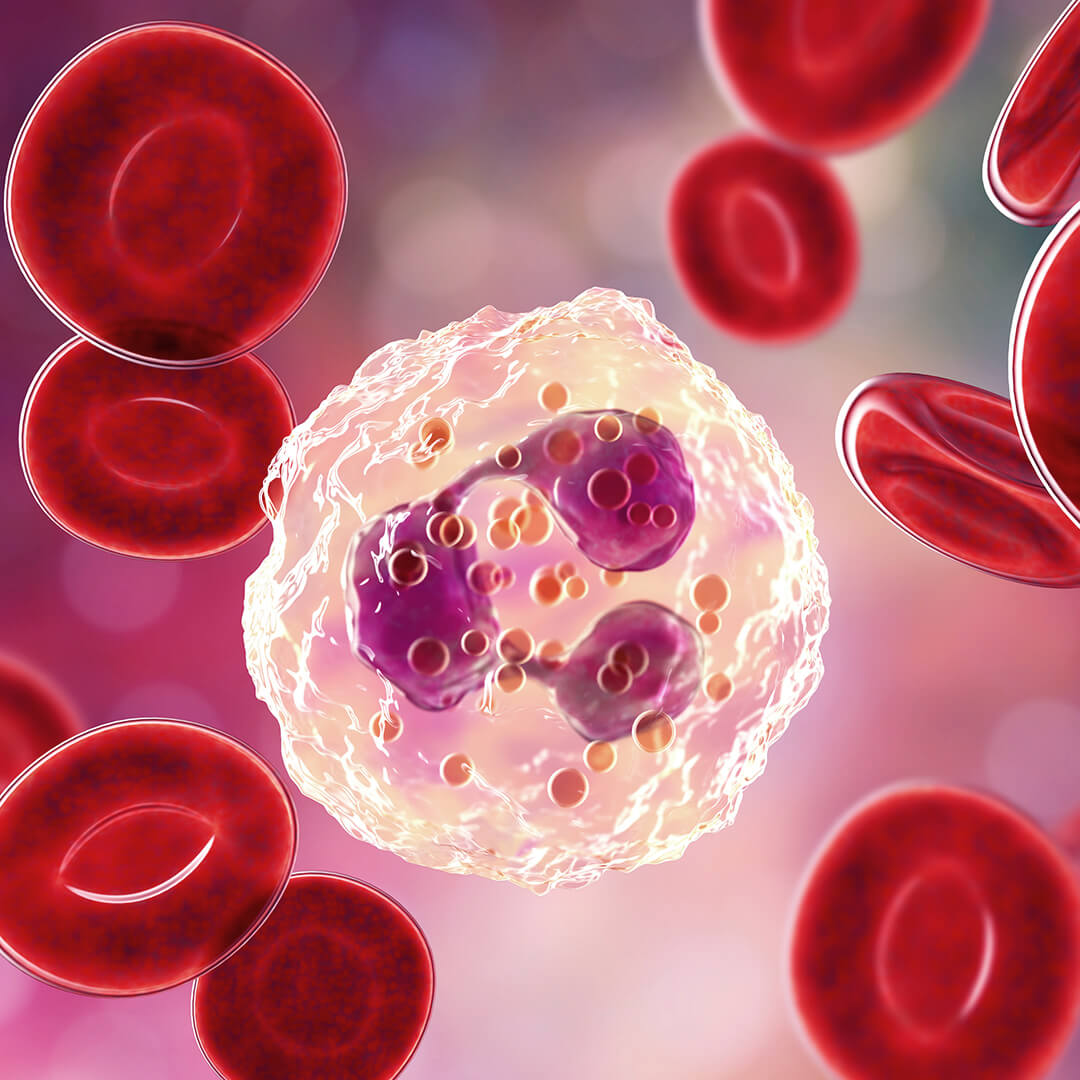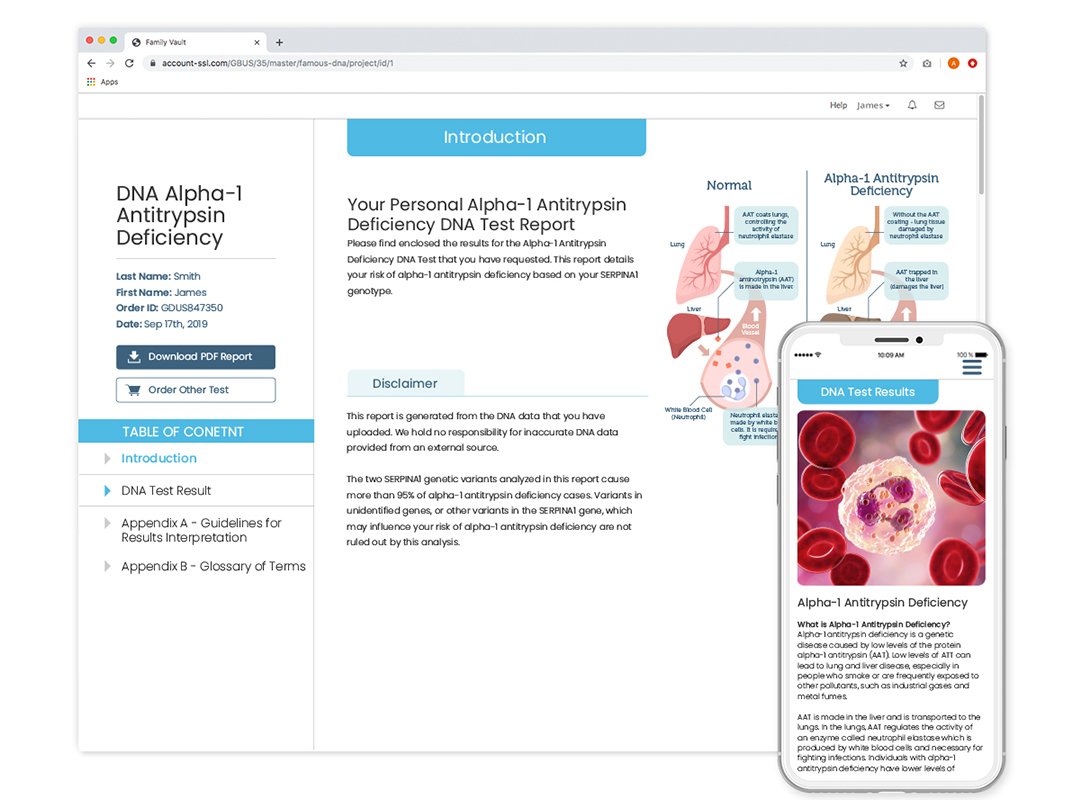Step 1: Sign up for a free Genebase account.
Step 2: Upload your DNA markers to Genebase.
Step 3: Login to your account to access your results when they are ready.
Alpha-1 Antitrypsin Deficiency
Are you at risk of alpha-1 antitrypsin deficiency? Find out with this DNA Test.
- Detects two SERPINA1 variants that cause 95% of alpha-1 antitrypsin deficiency cases
- Individuals with these variants are at high risk of developing the disease
- 100% private and confidential online results
Already have DNA markers? Sign in and upload your data to view results.
Need to take the DNA Test? Order our easy-to-use swab kit.
Detailed Description
Alpha-1 antitrypsin deficiency is a genetic disease caused by low levels of the protein alpha-1 antitrypsin (AAT).
AAT is made in the liver and is transported to the lungs. In the lungs, AAT regulates the activity of an enzyme called neutrophil elastase which is produced by white blood cells and necessary for fighting infections.
People with alpha-1 antitrypsin deficiency produce lower levels of functional AAT and are not able to regulate the activity of neutrophil elastase. When neutrophil elastase is not properly regulated, it can attack and destroy normal lung tissue. Abnormal AAT can also build up in the liver, leading to liver damage.
Take this test to find out whether you are at risk, so you can start making changes to stay healthy.

The Genetics
This test looks at a genetic variation in the SERPINA1 gene, which encodes alpha-1 antitrypsin (AAT). More than 95% of alpha-1 antitrypsin deficiency cases are caused by two variants known as PI*S and PI*Z, which lead to reduced or abnormal AAT.

Variants Detected
The wild type form of the SERPIN1 gene is known as PI*M, while the two variants associated with a majority of AAT deficiency are known as PI*S and PI*Z. This report details your risk of alpha-1 antitrypsin deficiency based on your SERPIN1 genotype:
- PI*MM, PI*MS or PI*SS – Not at increased risk
- PI*MZ or PI*SZ – Not at increased risk if you are a nonsmoker. Smokers are at increased risk
- PI*ZZ – Increased risk for both nonsmokers and smokers
Understanding your genetic risk for alpha-1 antitrypsin deficiency can encourage early monitoring and symptom management to avoid lung and liver damage.
How It Works


